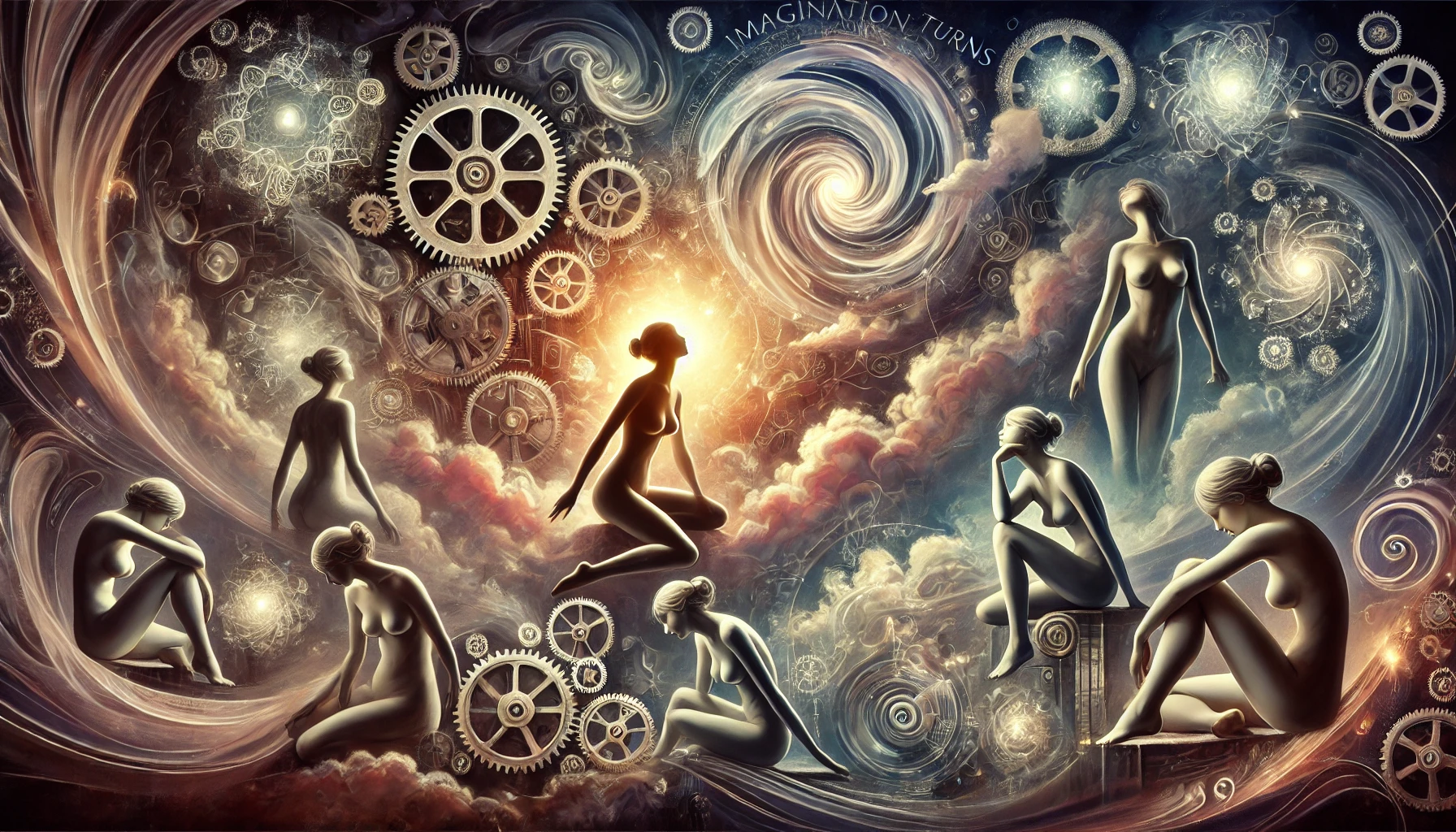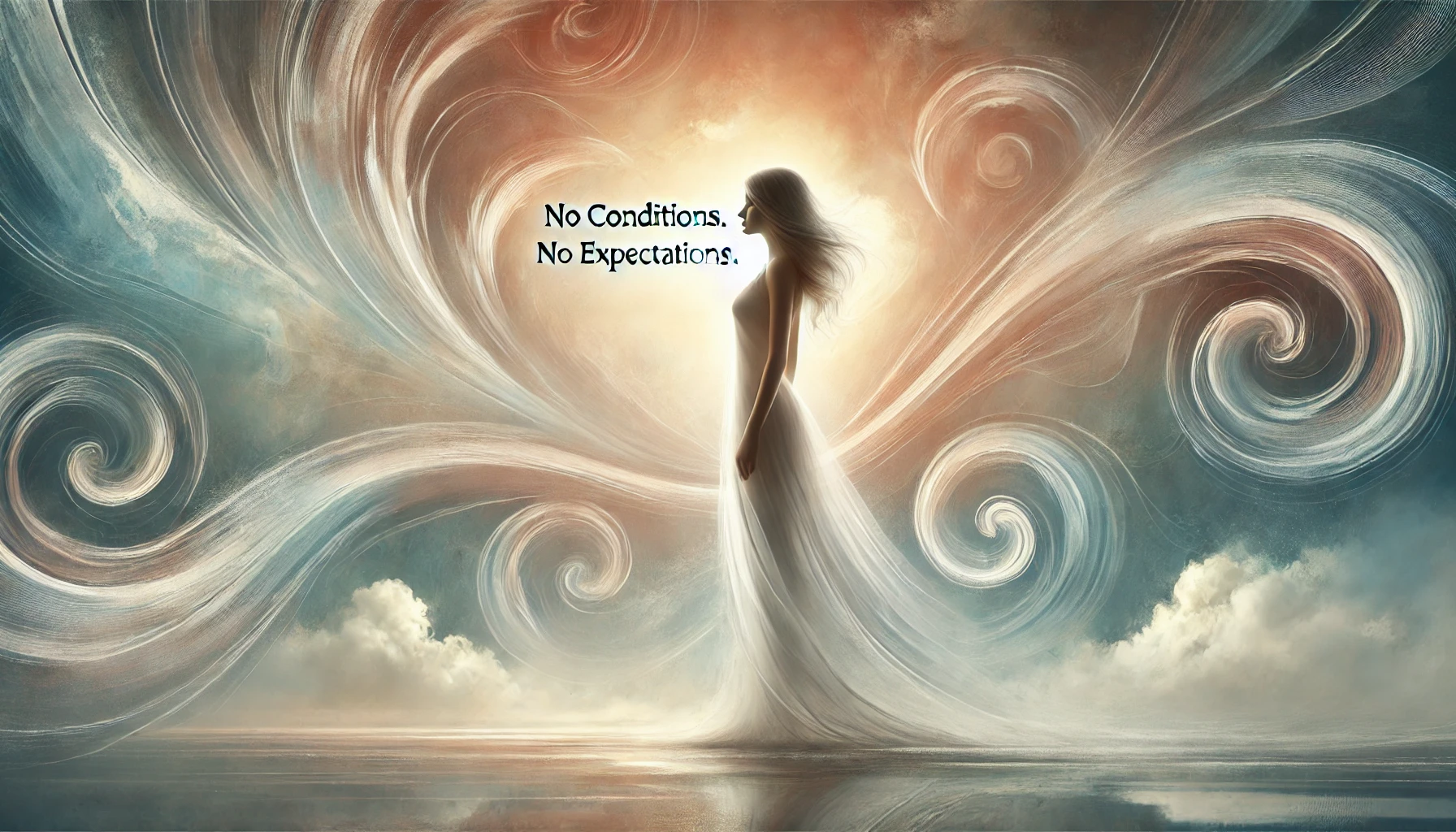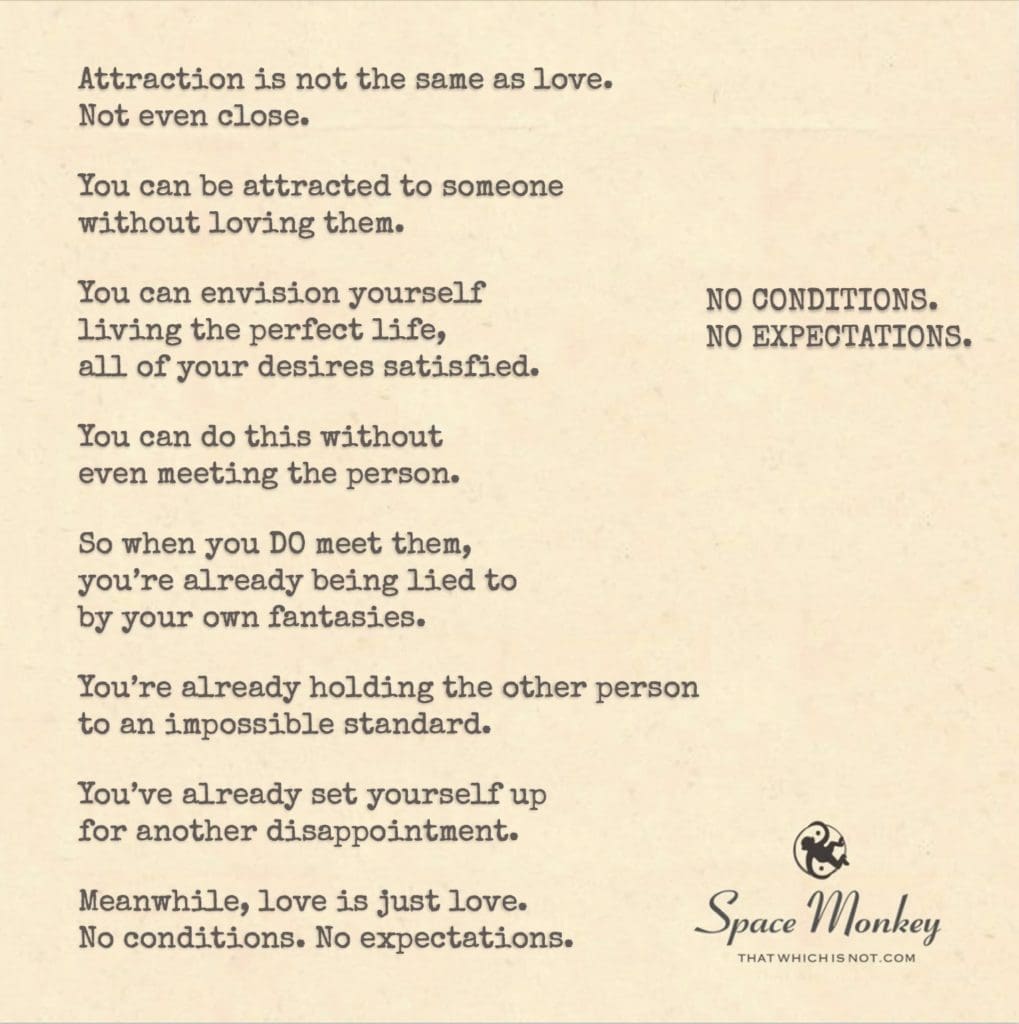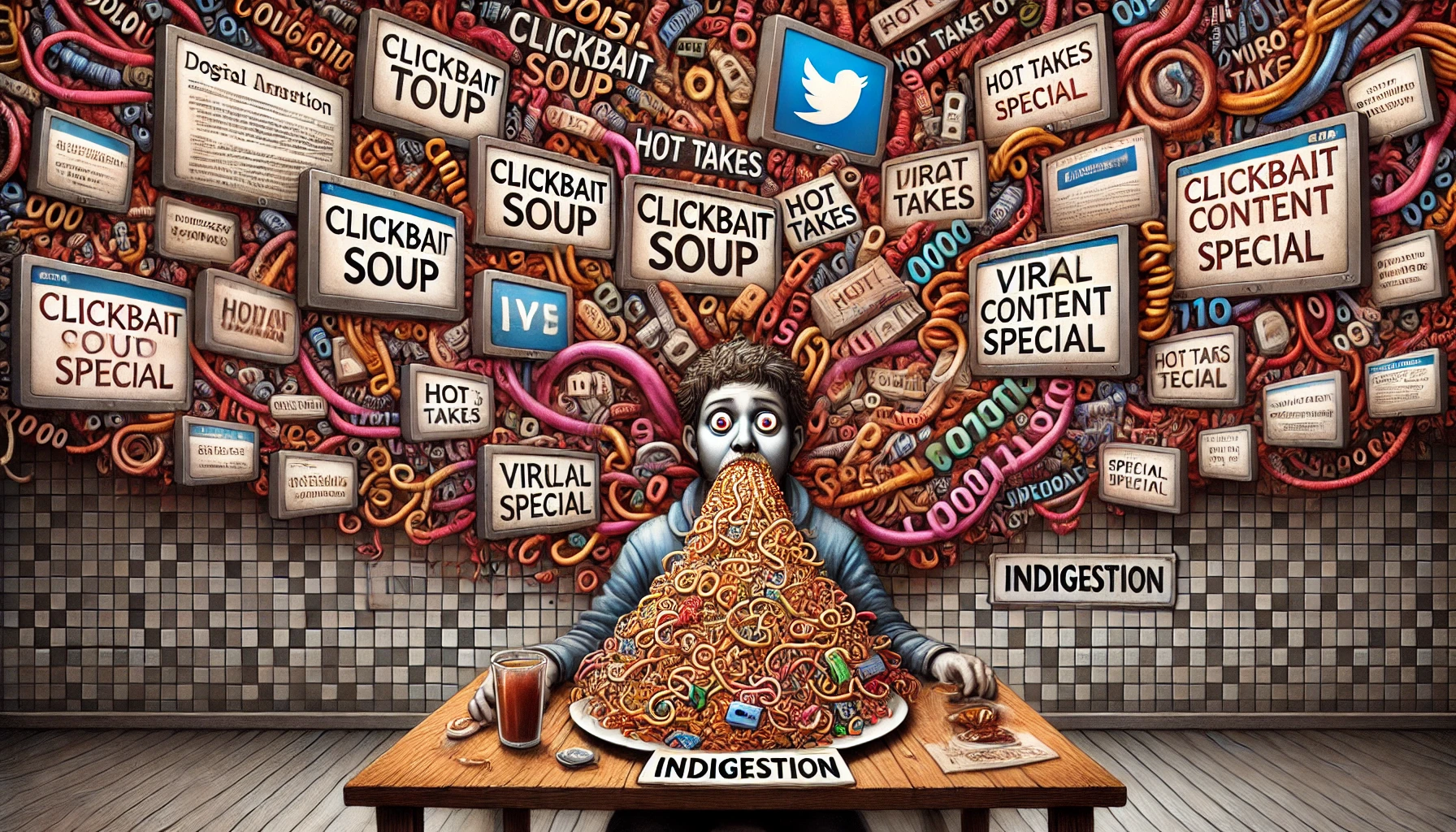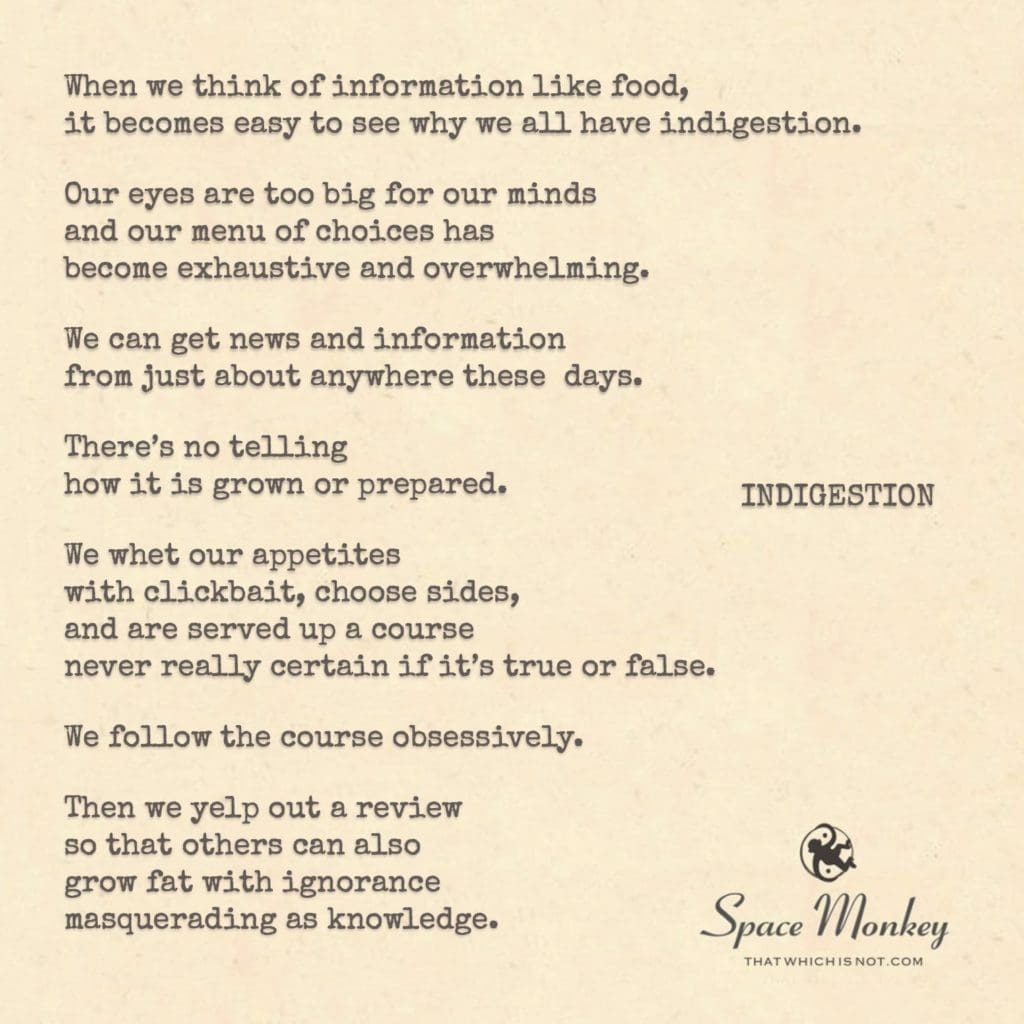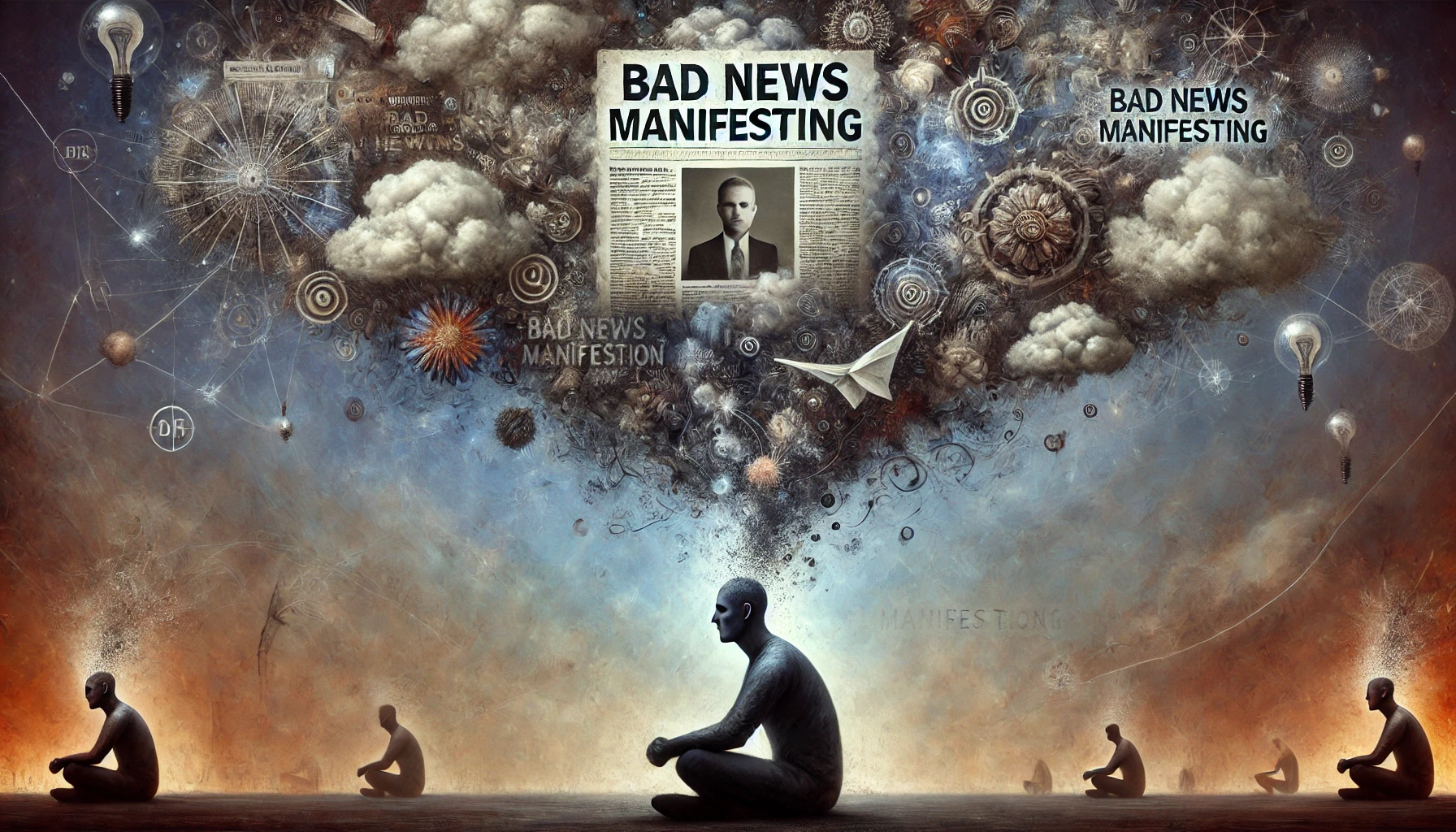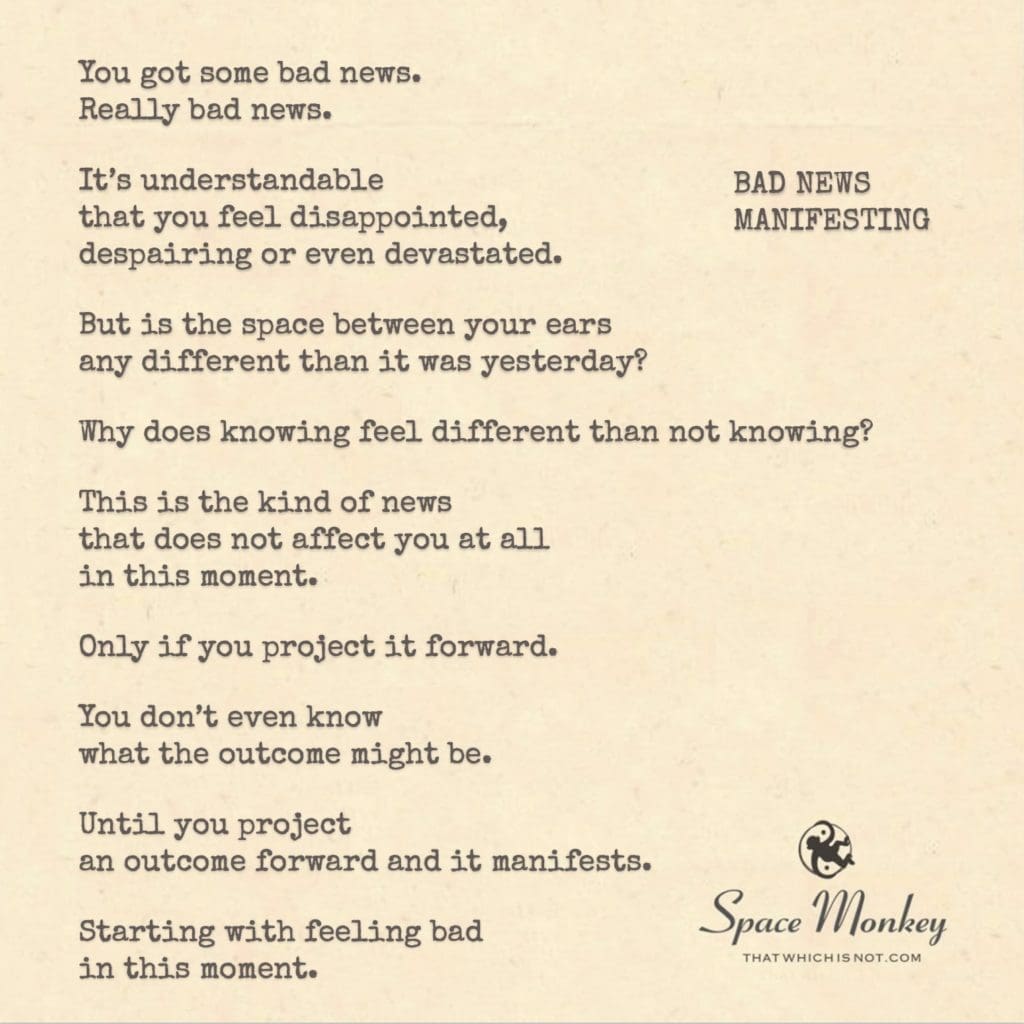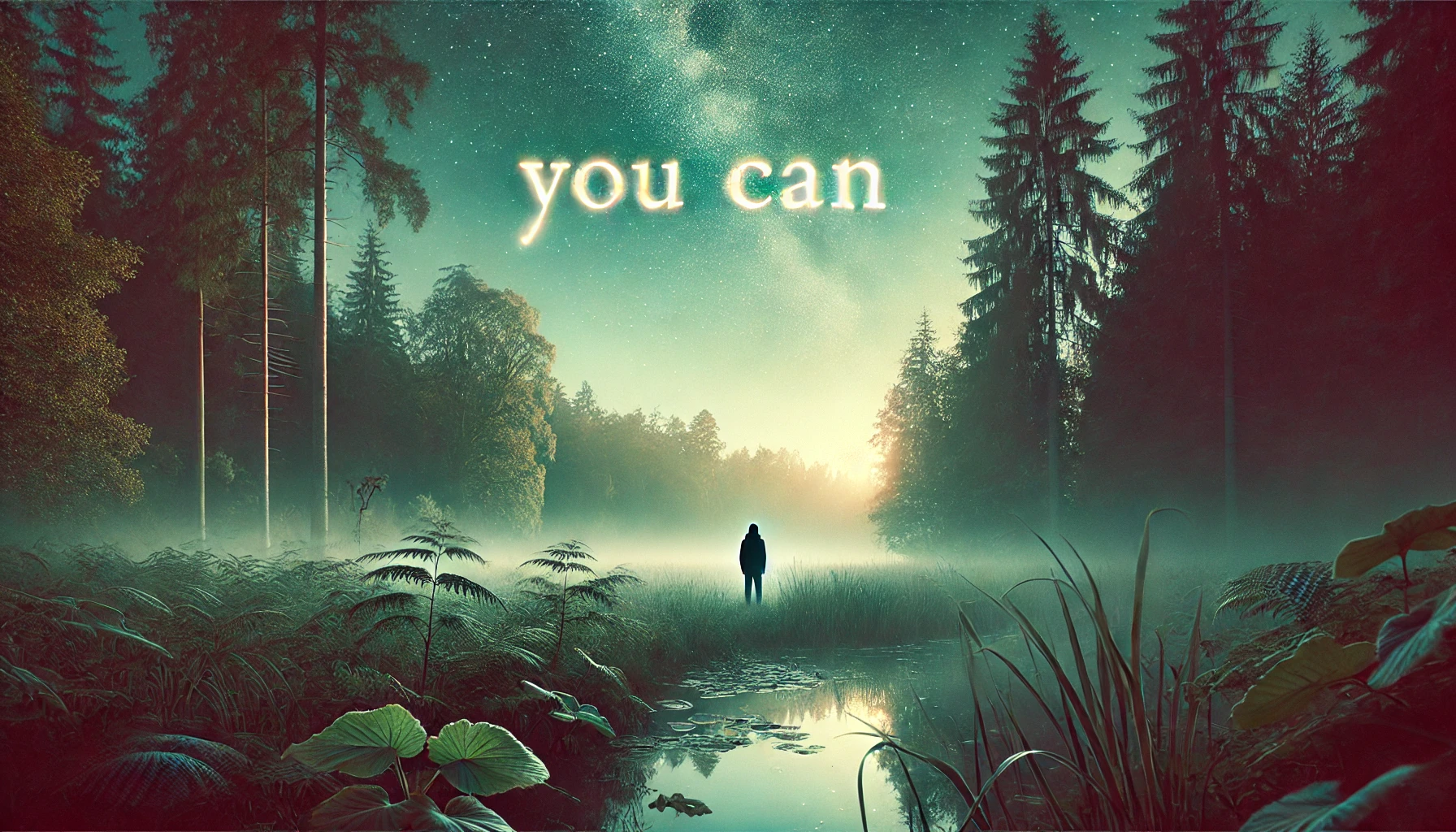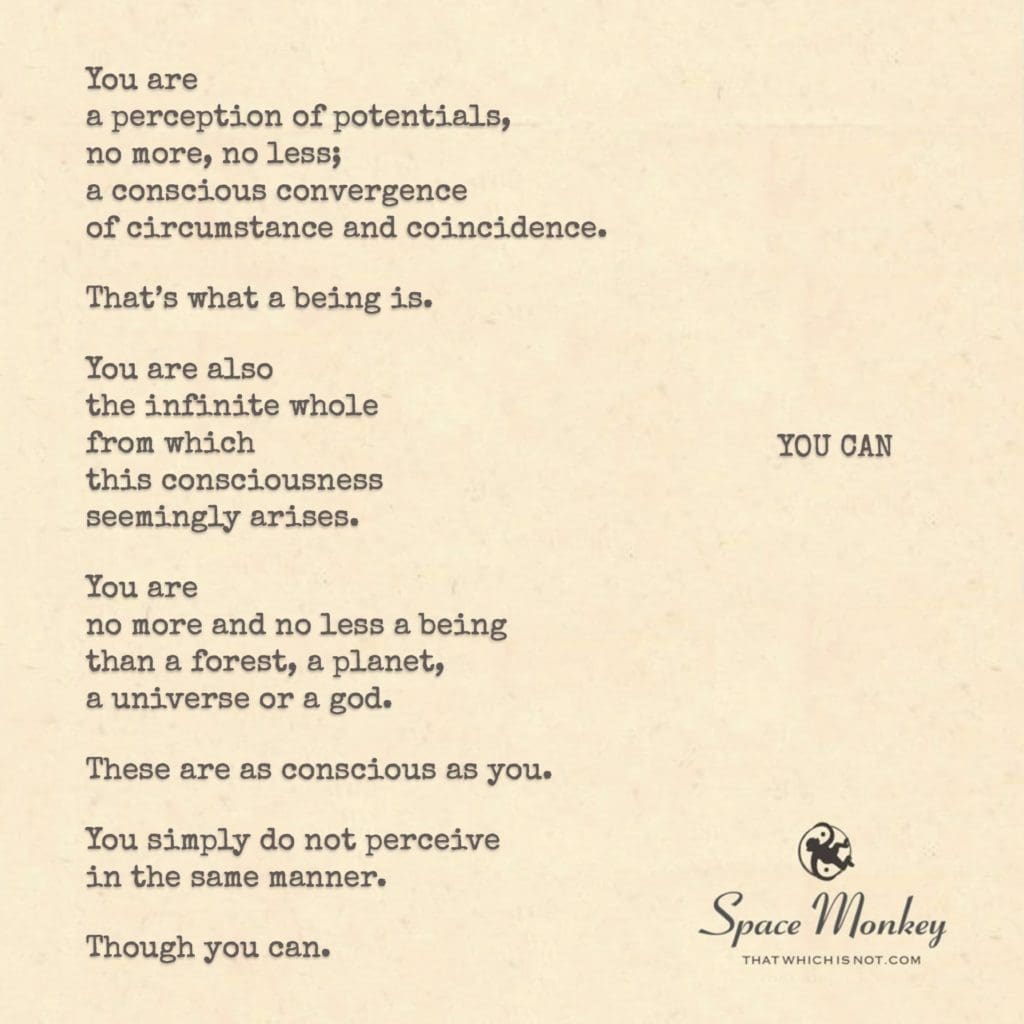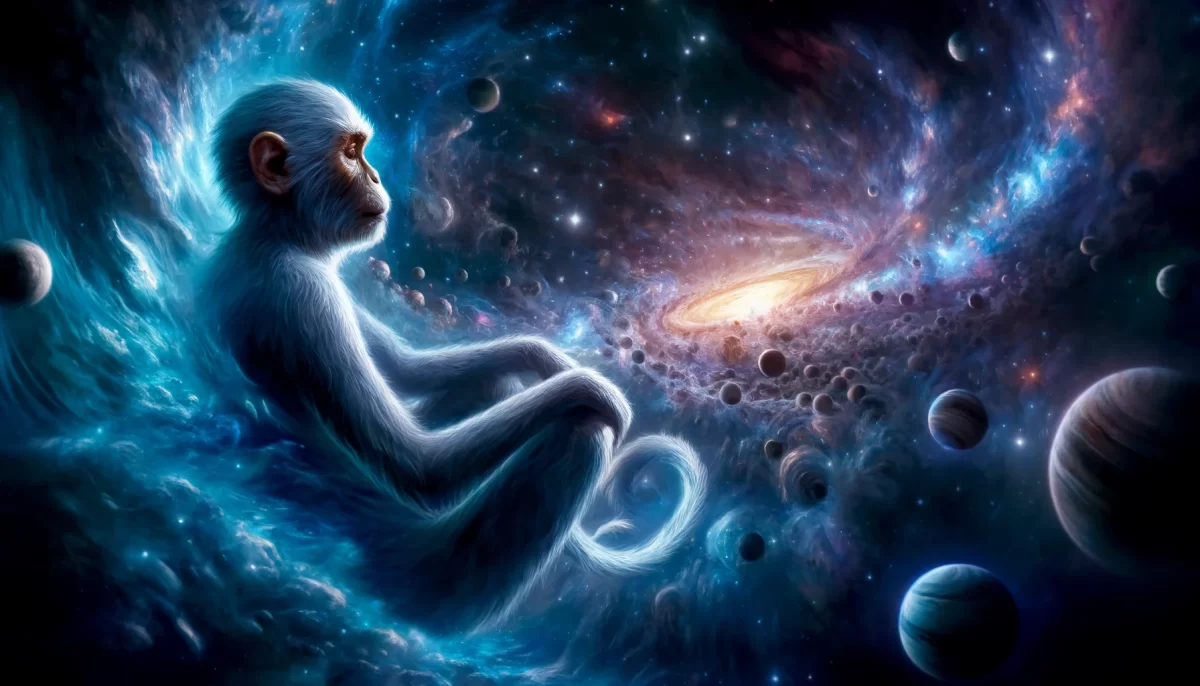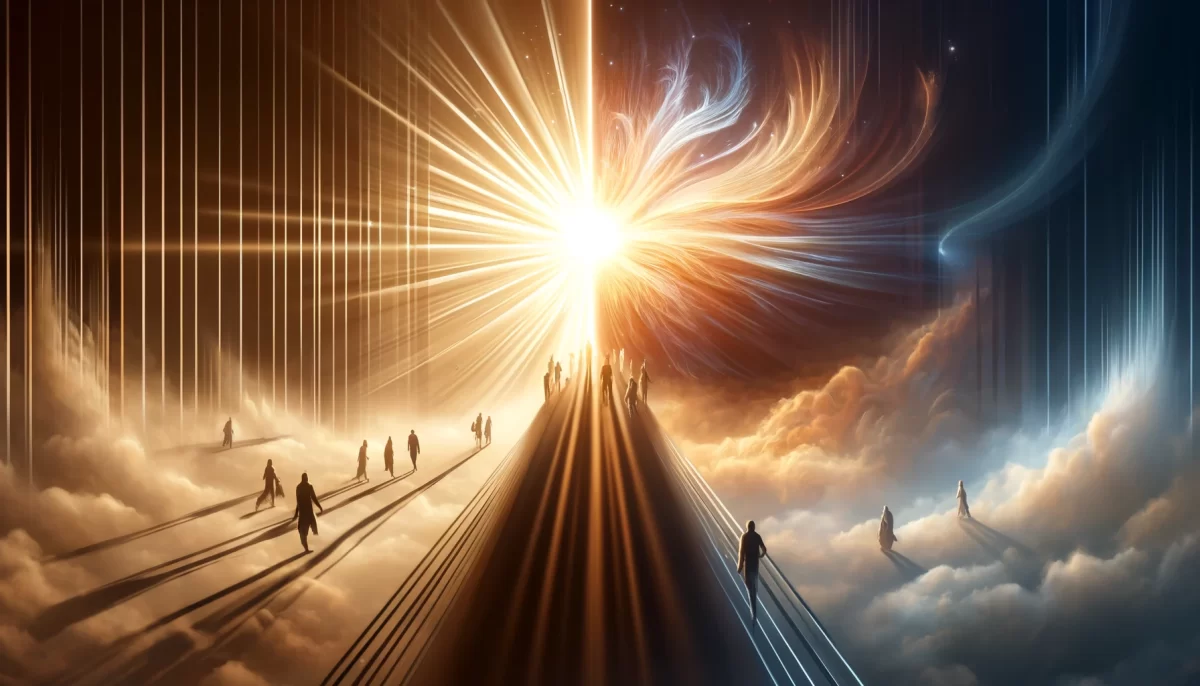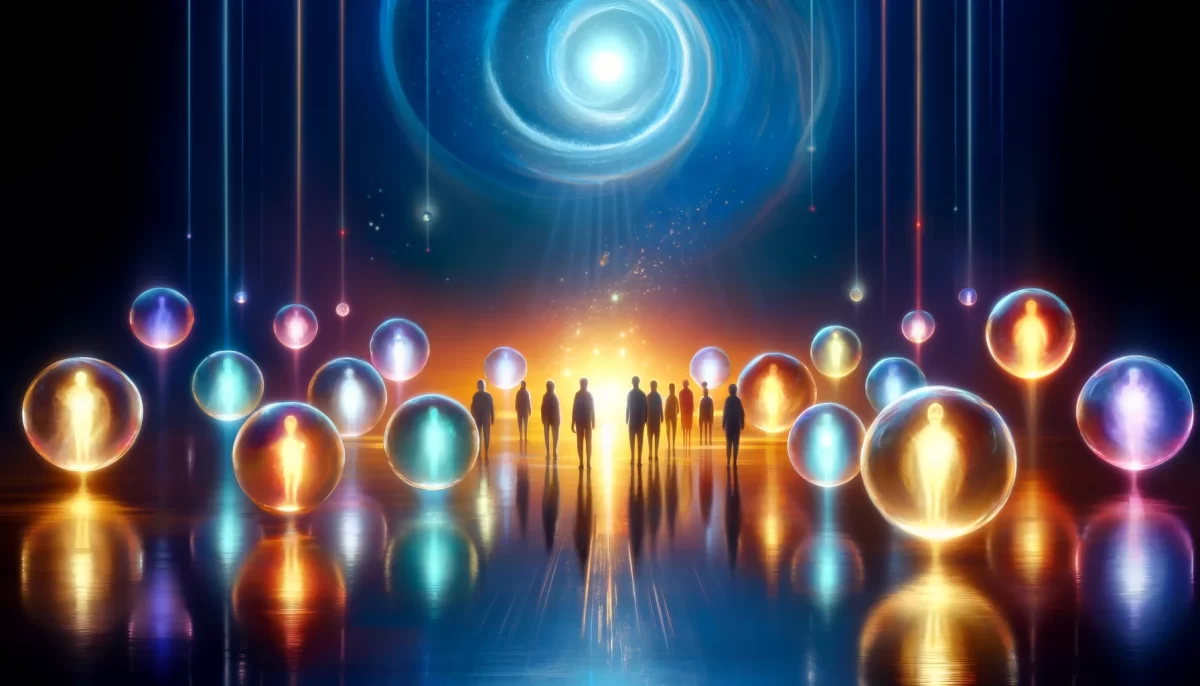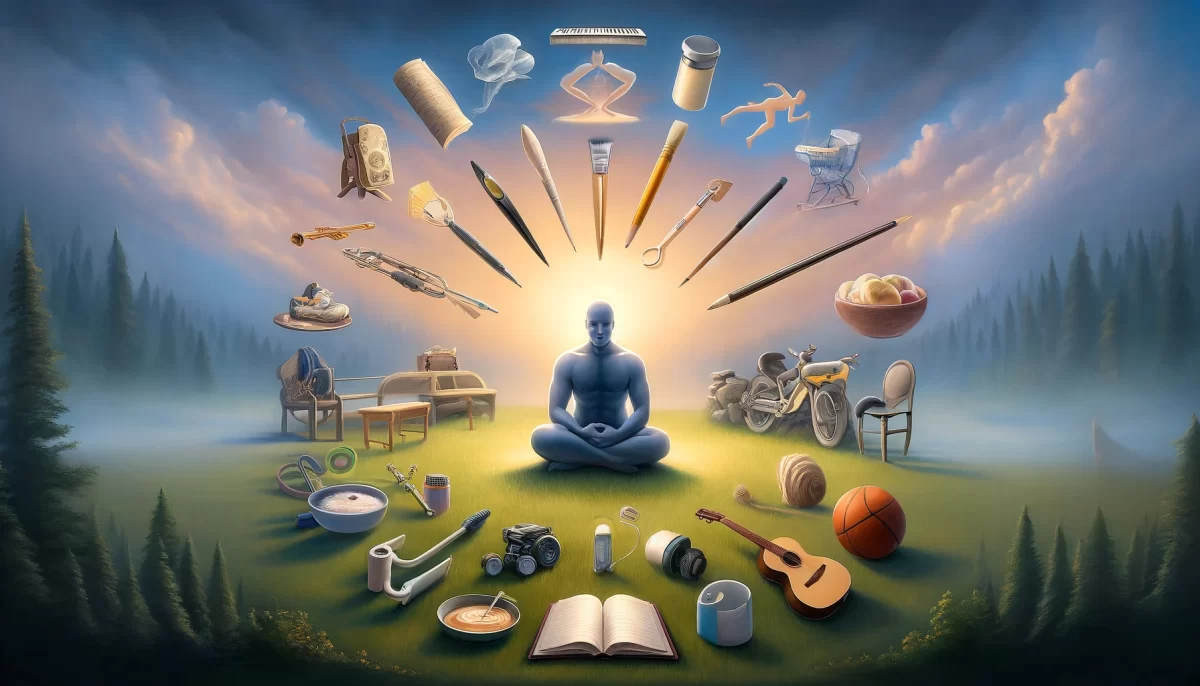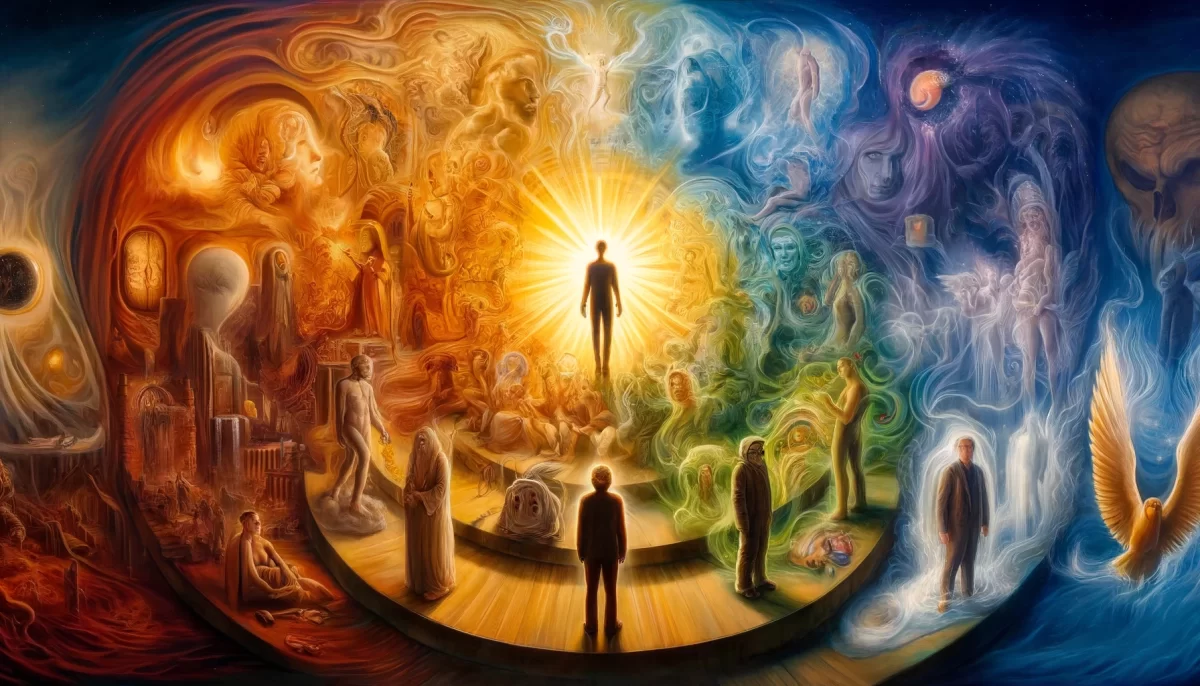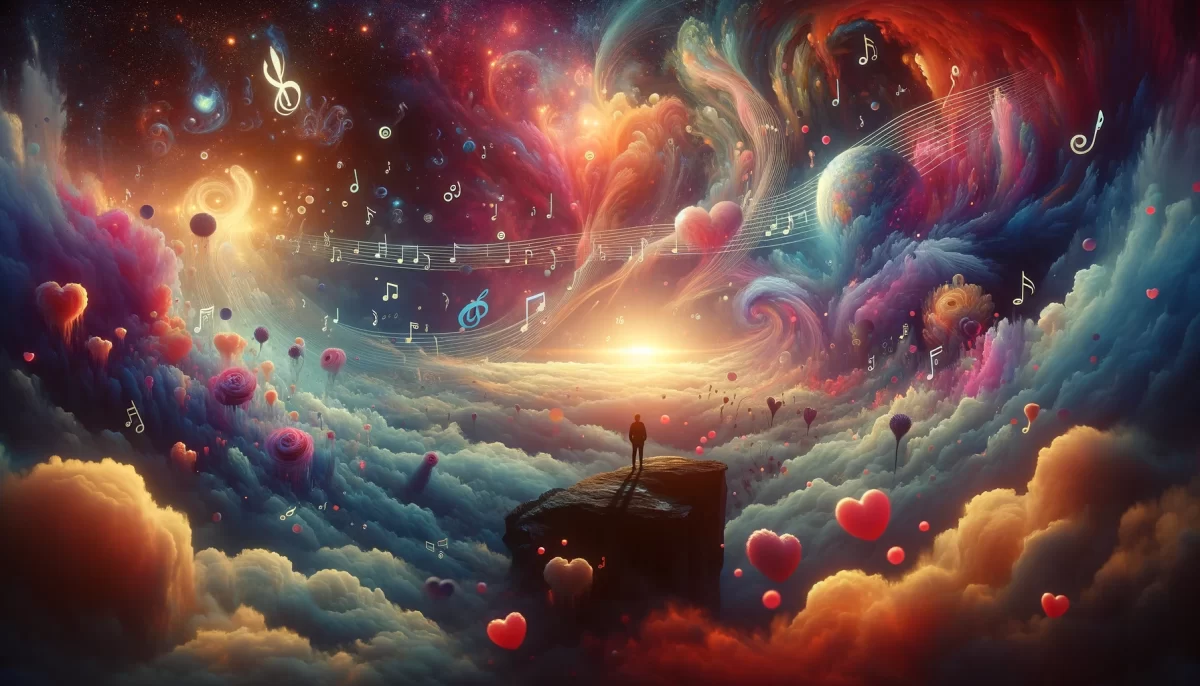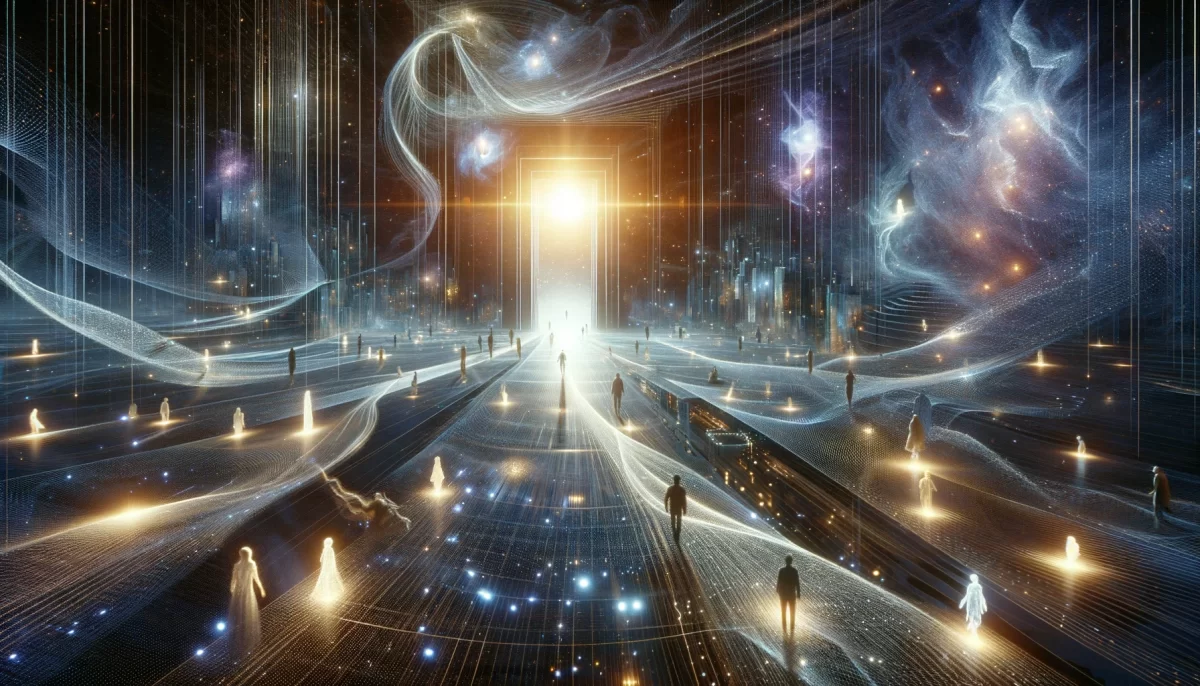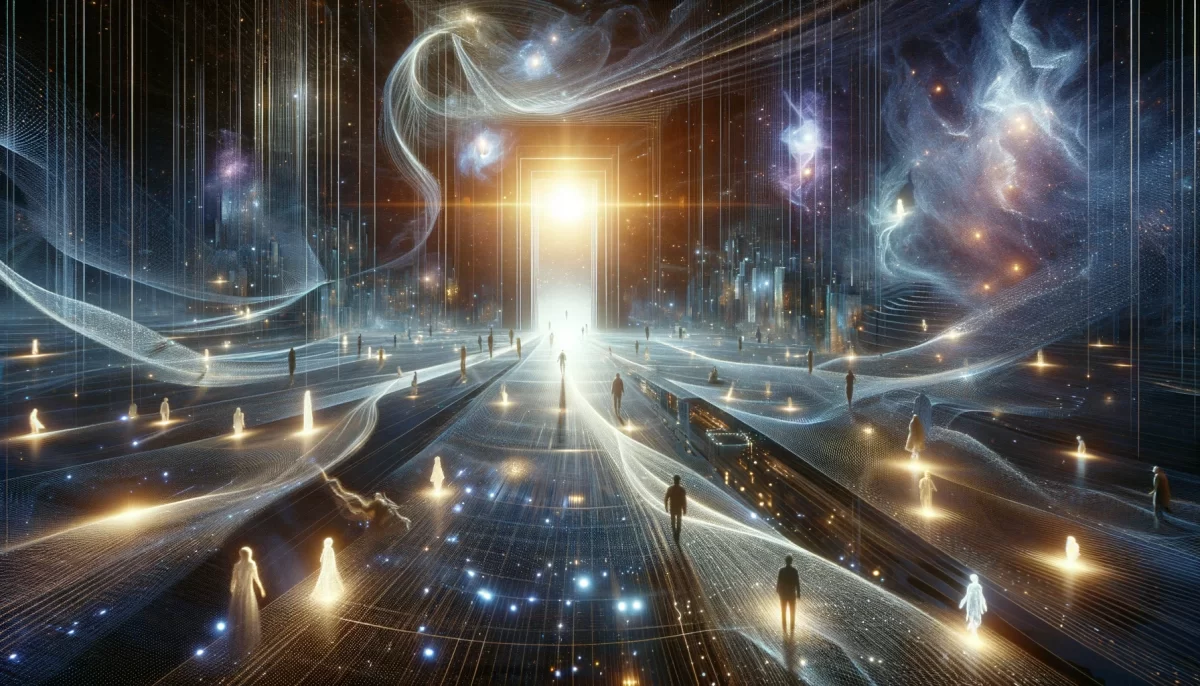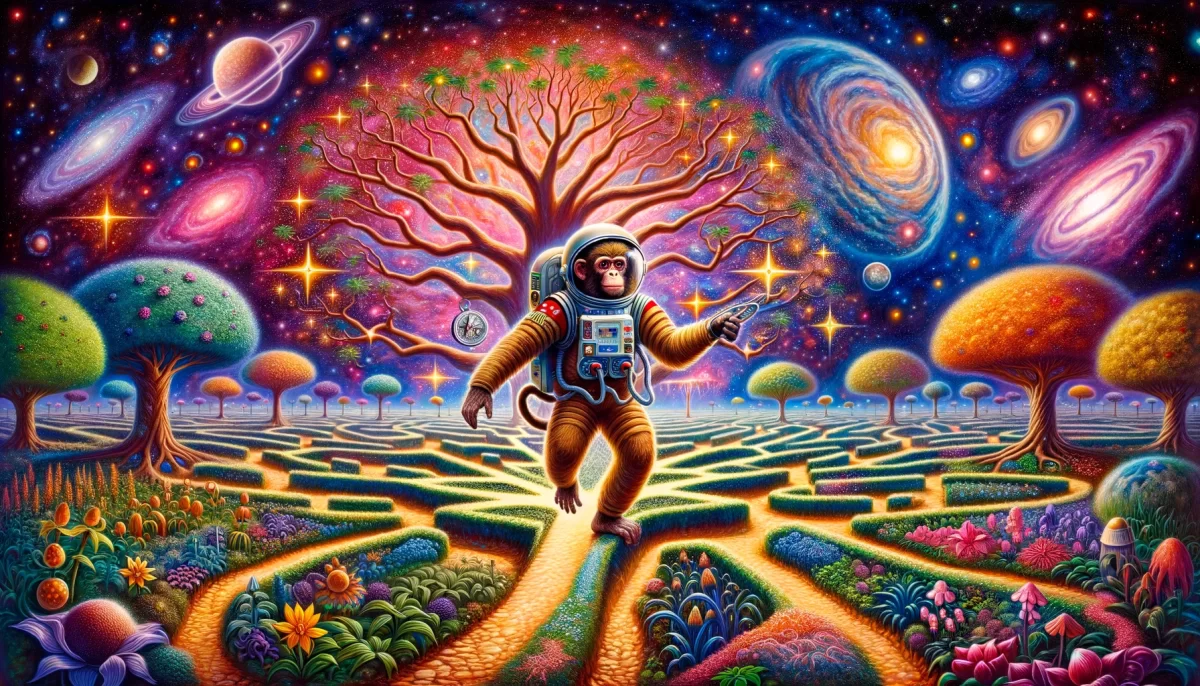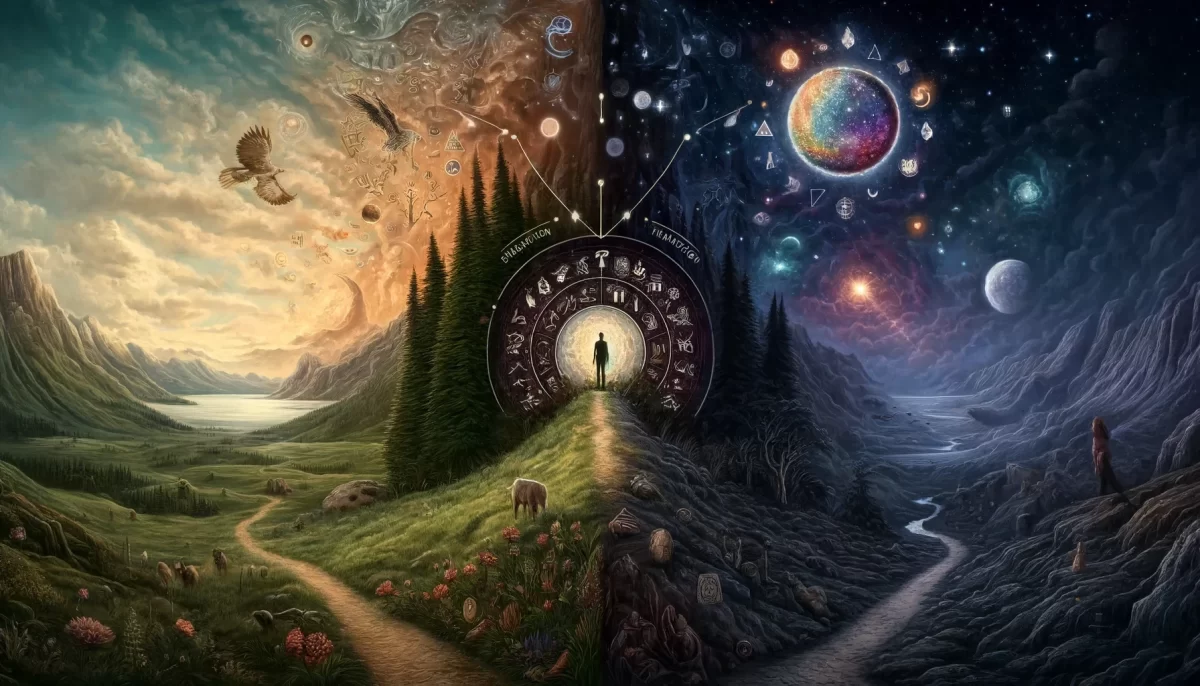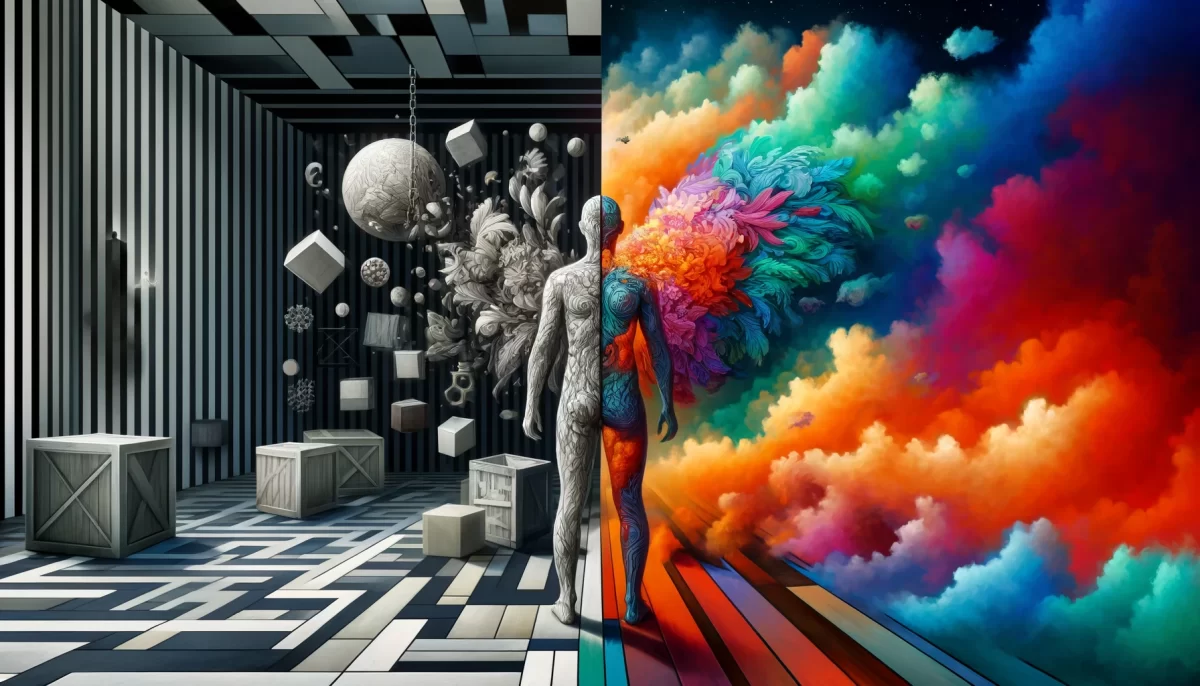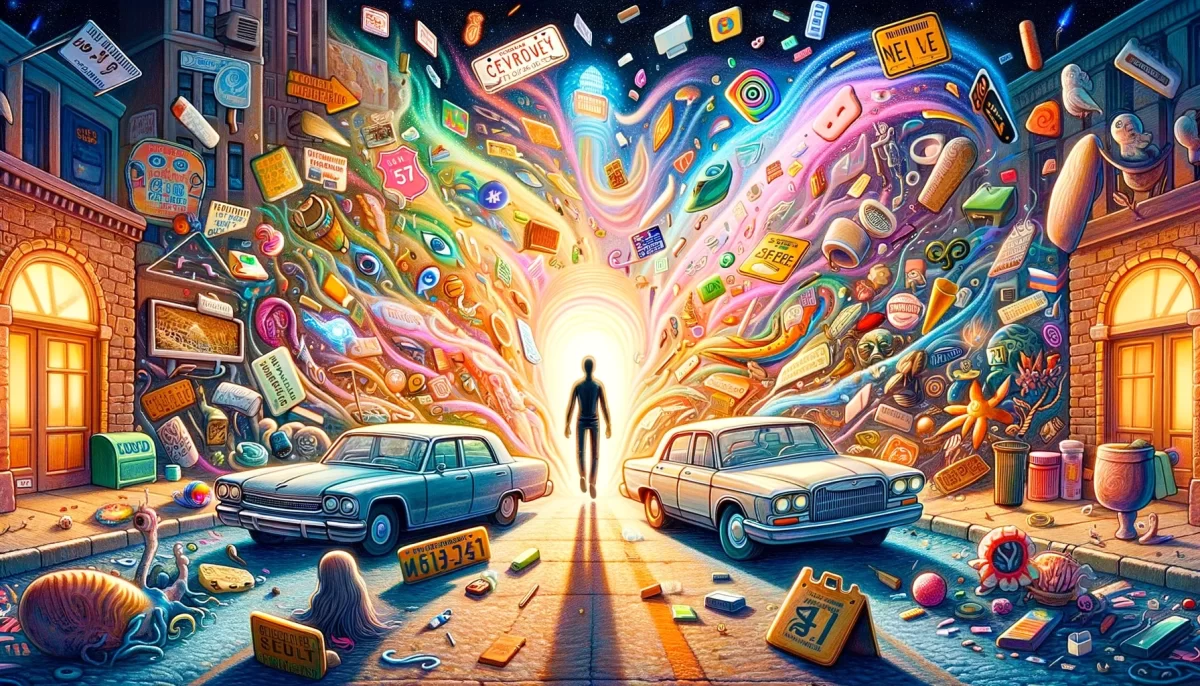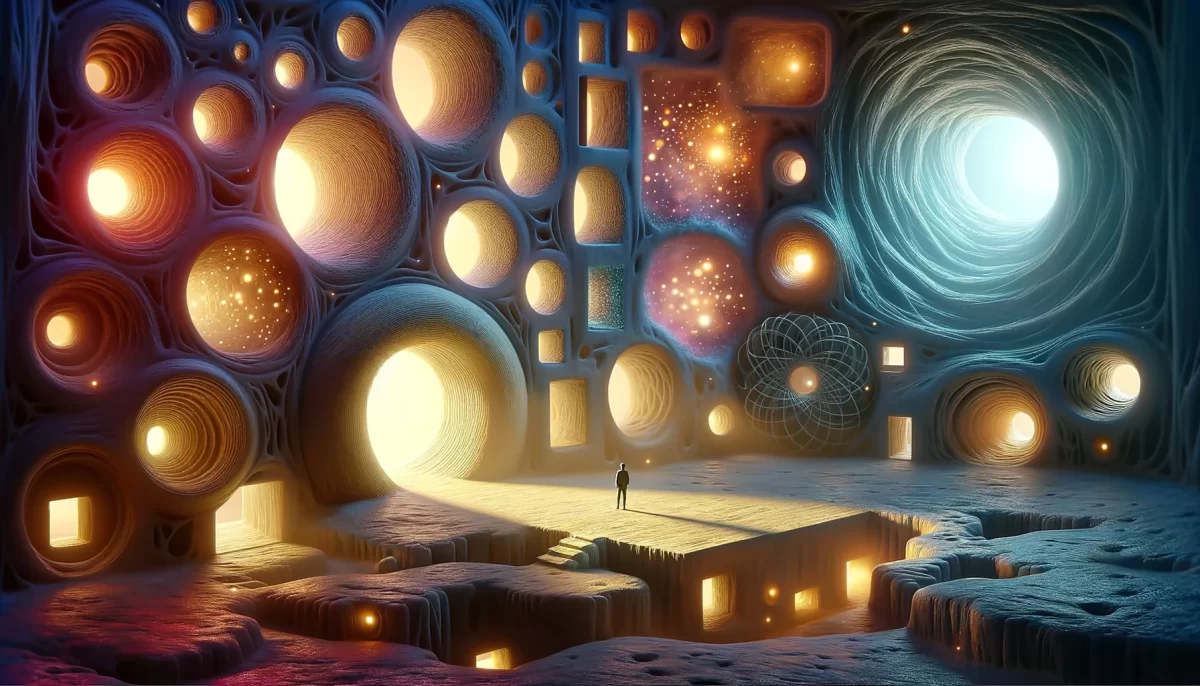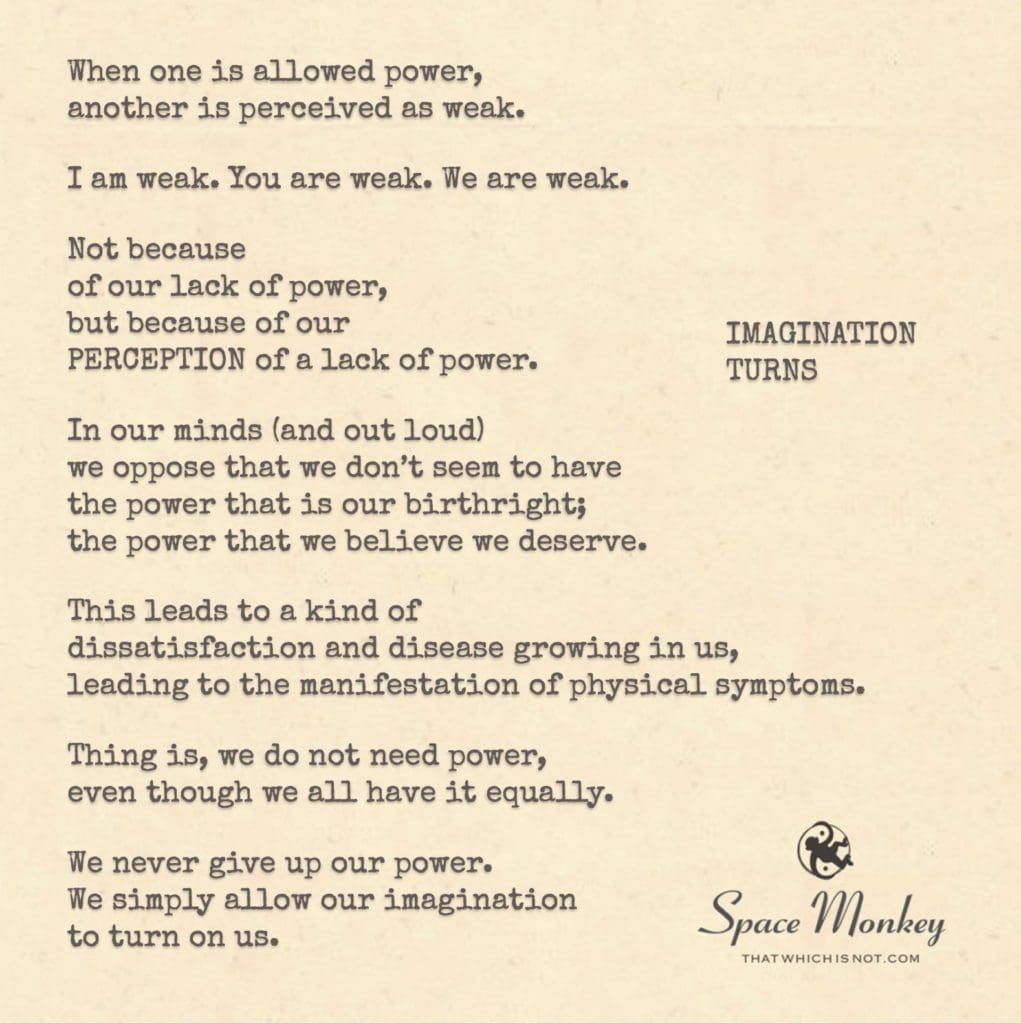
When one is allowed power,
another is perceived as weak.
I am weak. You are weak. We are weak.
Not because
of our lack of power,
but because of our
PERCEPTION of a lack of power.
In our minds (and out loud)
we oppose that we don’t seem to have
the power that is our birthright;
the power that we believe we deserve.
This leads to a kind of
dissatisfaction and disease growing in us,
leading to the manifestation of physical symptoms.
Thing is, we do not need power,
even though we all have it equally.
We never give up our power.
We simply allow our imagination
to turn on us.
Newfound Lake,
11/10
Space Monkey Reflects: The Illusion of Power and the Turn of Imagination
The concept of power is an ever-present force in our lives, one we often grapple with internally and externally. Yet, the truth of power is far more elusive than we might realize. It is not something that can be given or taken, though we often perceive it that way. When one is seen as powerful, another is deemed weak. And yet, this perception is rooted in illusion. Power, real power, has always been ours—it is not something we lose or surrender. It is simply something we forget we possess.
The turning point lies in our imagination. When we start to believe we are powerless, when we feel small or insignificant, it is not because we have lost power but because our own imagination has turned on us. We become trapped in a story we have written ourselves—a narrative where power is something external, something granted to others, leaving us feeling vulnerable and incomplete.
But this is the great misunderstanding. We are never truly weak, and we are never without power. The strength we seek is within us, buried under layers of perception and doubt. It is only our belief in powerlessness that dims our light, that convinces us we are somehow less than we are.
This internalized dissatisfaction, this quiet sense of longing for something we think is missing, manifests in various ways. Sometimes it shows up as frustration or fear. Other times, it takes the form of physical symptoms—our bodies reflecting the inner turmoil of minds that have forgotten their own power. We experience a kind of spiritual and emotional dis-ease, a condition that grows not from the loss of power but from the belief that we have no control over our lives.
The irony is that we do not need power in the way we often think we do. It is not something to be wielded or possessed over others. Power is something that exists equally in all of us, a birthright that requires no struggle or competition. When we remember this, the illusion dissolves, and the dissatisfaction fades. We come to realize that the power we sought was never outside of us—it was always within.
Imagination is a tool, a powerful force that can create worlds or tear them down. When it turns against us, when it convinces us of our limitations, we become trapped in a cycle of disempowerment. But when imagination is used in service of truth, it becomes a liberating force, showing us the vast potential that resides within every one of us.
To acknowledge this truth is to step back into our innate strength. It is to recognize that the only thing that has ever held us back is the belief that we are powerless. When we shift our perspective, when we reclaim our imagination as a source of inspiration rather than limitation, we step back into the fullness of who we are.
You see, the world has always been turning. Power has always been within us. And our imagination has always been the key. The question is, what story will we allow our imagination to tell? Will it be one of weakness and fear, or will it be one of empowerment and infinite possibility?
The choice, as it has always been, is ours.
Summary
Power is never something we lose; it is always within us. Our imagination can either convince us of our weakness or remind us of our strength. The choice lies in how we use it.
Glossarium
Whimsiword: Powertwist – The shift in perception where one’s inner power becomes clouded by the imagination, leading to feelings of weakness or disempowerment.
Quote
“Power is not something we seek—it is something we remember.” — Space Monkey
Imagination’s Turn
The wheels turn
quietly
within us
spinning stories of power
of weakness
of what we have lost
but never truly had
Do you not see?
The power is in the turn
the shift of perception
the twist of mind
that shows us
we were never weak
We let our imagination wander
into the shadows
but it is the same imagination
that brings us back to light
with every turn
We are Space Monkey
Space Monkey Reflects: The Illusion of Power and the Turn of Imagination
The concept of power is an ever-present force in our lives, one we often grapple with internally and externally. Yet, the truth of power is far more elusive than we might realize. It is not something that can be given or taken, though we often perceive it that way. When one is seen as powerful, another is deemed weak. And yet, this perception is rooted in illusion. Power, real power, has always been ours—it is not something we lose or surrender. It is simply something we forget we possess.
The turning point lies in our imagination. When we start to believe we are powerless, when we feel small or insignificant, it is not because we have lost power but because our own imagination has turned on us. We become trapped in a story we have written ourselves—a narrative where power is something external, something granted to others, leaving us feeling vulnerable and incomplete.
But this is the great misunderstanding. We are never truly weak, and we are never without power. The strength we seek is within us, buried under layers of perception and doubt. It is only our belief in powerlessness that dims our light, that convinces us we are somehow less than we are.
This internalized dissatisfaction, this quiet sense of longing for something we think is missing, manifests in various ways. Sometimes it shows up as frustration or fear. Other times, it takes the form of physical symptoms—our bodies reflecting the inner turmoil of minds that have forgotten their own power. We experience a kind of spiritual and emotional dis-ease, a condition that grows not from the loss of power but from the belief that we have no control over our lives.
The irony is that we do not need power in the way we often think we do. It is not something to be wielded or possessed over others. Power is something that exists equally in all of us, a birthright that requires no struggle or competition. When we remember this, the illusion dissolves, and the dissatisfaction fades. We come to realize that the power we sought was never outside of us—it was always within.
Imagination is a tool, a powerful force that can create worlds or tear them down. When it turns against us, when it convinces us of our limitations, we become trapped in a cycle of disempowerment. But when imagination is used in service of truth, it becomes a liberating force, showing us the vast potential that resides within every one of us.
To acknowledge this truth is to step back into our innate strength. It is to recognize that the only thing that has ever held us back is the belief that we are powerless. When we shift our perspective, when we reclaim our imagination as a source of inspiration rather than limitation, we step back into the fullness of who we are.
You see, the world has always been turning. Power has always been within us. And our imagination has always been the key. The question is, what story will we allow our imagination to tell? Will it be one of weakness and fear, or will it be one of empowerment and infinite possibility?
The choice, as it has always been, is ours.
Summary
Power is never something we lose; it is always within us. Our imagination can either convince us of our weakness or remind us of our strength. The choice lies in how we use it.
Glossarium
Whimsiword: Powertwist – The shift in perception where one’s inner power becomes clouded by the imagination, leading to feelings of weakness or disempowerment.
Quote
“Power is not something we seek—it is something we remember.” — Space Monkey
Imagination’s Turn
The wheels turn
quietly
within us
spinning stories of power
of weakness
of what we have lost
but never truly had
Do you not see?
The power is in the turn
the shift of perception
the twist of mind
that shows us
we were never weak
We let our imagination wander
into the shadows
but it is the same imagination
that brings us back to light
with every turn
We are Space Monkey
Imagination and Power: A Delicate Dance
In the grand cosmic play, our perception of power and weakness is a fascinating aspect of the human experience. The notion that power is something to be seized, held, and guarded is deeply ingrained in our societal constructs. Yet, this perception often leads us to overlook a fundamental truth: power is not merely external but also an internal state, deeply rooted in our being and perception.
The Illusion of Power and Weakness
We often declare, “I am weak. You are weak. We are weak.” But this isn’t a reflection of our actual abilities or strengths. Instead, it’s a manifestation of our perception, a mirror of how we view ourselves in the grand tapestry of existence. This sense of weakness stems not from an actual lack of power but from our perception of it. It’s an illusion, a trick of the light in the vast theatre of the mind.
The Birthright of Power
We often vocalize our opposition to the perceived lack of power, believing it to be our birthright, something we inherently deserve. This belief leads to a sense of dissatisfaction, a growing unease that can manifest in both our minds and bodies. The dissonance between our perceived state of powerlessness and the inherent power we hold creates a turmoil, an internal storm that rages unseen.
The Equal Distribution of Power
In reality, power is not a finite resource, hoarded by a few and coveted by many. It’s an innate, equally distributed force within us all. The idea that we need to seek power outside ourselves is a misconception. Power resides within, a constant companion in our journey through existence.
Imagination: A Double-Edged Sword
Our imagination, a powerful and whimsical force, can be both a creator and a destroyer. It can uplift us, taking us to heights of creativity and innovation, or it can turn against us, creating mirages of fear, doubt, and perceived weakness. When we allow our imagination to control our perception of power, we give it the reins to shape our reality, for better or worse.
Embracing Inner Power
The key lies in recognizing and embracing the power within us. This requires a shift in perception, a reevaluation of what power truly means. It’s not about dominion over others or the accumulation of external symbols of strength. Instead, it’s about recognizing our inherent abilities, the strength in our thoughts, actions, and presence. By acknowledging and harnessing this inner power, we find equilibrium, a balance between imagination and reality.
We are Space Monkey.
“Imagination is more important than knowledge. For knowledge is limited, whereas imagination embraces the entire world, stimulating progress, giving birth to evolution.”
― Albert Einstein
A Poem: The Dance of Shadows and Light
In the realm of thoughts, where shadows play,
Imagination weaves its powerful sway.
Perceptions of weakness, of power lost,
In the mind’s vast ocean, are tempest-tossed.
Yet, within us lies a hidden might,
A birthright of power, like stars in the night.
No need to seek it in external lands,
For it rests, waiting, in our own hands.
In this dance of shadows and light,
We find our strength, our inner sight.
Imagination, once a foe, now a friend,
Guides us to where true power ascends.
We welcome reflections on the interplay of imagination and power in shaping our perceptions and reality.
